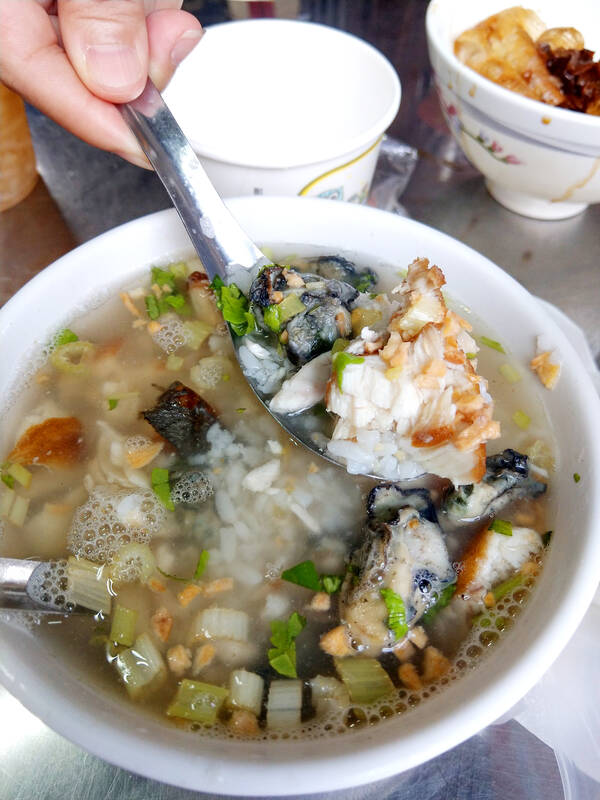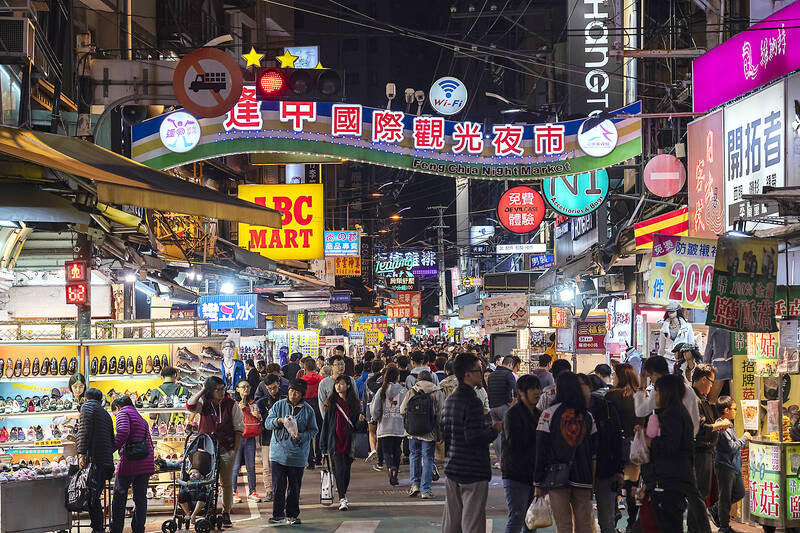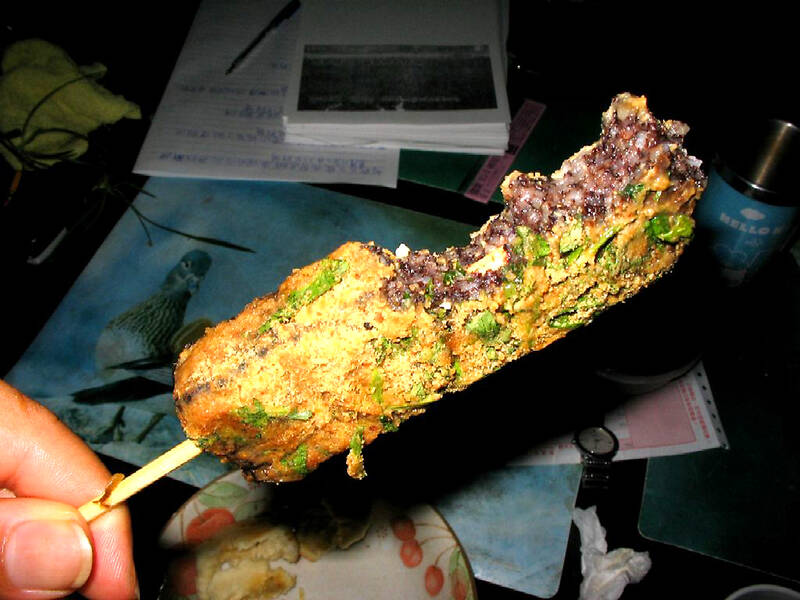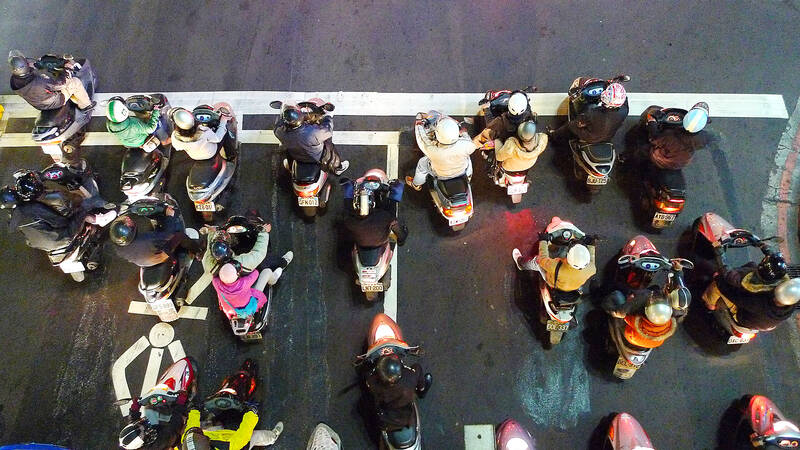Once again we are being treated to the quadrennial spectacle of the Chinese Nationalist Party (KMT) soul searching after a national election loss. No doubt like all previous such explorations it will find that it has no soul, and continue its zombie shuffle into national irrelevance.
The KMT has confirmed its choice of failed 2020 presidential candidate Han Kuo-yu (韓國瑜) as legislative speaker. This appears to signal the party’s intention to obstruct the operations of the legislature, except for a few pet projects like absentee voting and nuclear power.
As of this writing, the Taiwan People’s Party (TPP), which holds 8 seats in the legislature and can swing the balance between the two major parties, has said it will support Han. It seems likely that the legislature will be useless for a year or two, until the TPP’s base starts melting away when they don’t see change and the party’s leadership is forced to distance itself from its suicidal marriage to the KMT. Probably too late.

Photo courtesy of Wikimedia Commons
Before the election I observed that with years of speculation that New Taipei City Mayor Hou You-yi (侯友宜) would be the KMT candidate, still no one in the party pushed interesting or experimental public policies in New Taipei City to showcase Hou’s abilities and inventiveness, and raise his profile. Thankfully the KMT squandered that opportunity.
INNOVATIVE POLICIES NEEDED
That ball is now squarely in the Democratic Progressive Party’s (DPP) court. With the legislature hogtied, the DPP will be tempted to turn to foreign policy, as former DPP president Chen Shui-bian (陳水扁) did when the KMT held the legislature during his tenure. This will be a necessary but not sufficient move. The DPP needs to make fresh, innovative and publicly visible change at the city level, to take advantage of the opportunities that the three city mayors who ran for president wasted.

Photo courtesy of Wikimedia Commons
In the US, the 50 states are often treated as laboratories of public policy. In Taiwan, that should be the cities. The DPP should be offering innovative policies to put it ahead of its rivals, starting with walkable cities with car-free zones. Pick a city and get it done.
This needs to be linked with other local changes, like reconfiguring the cities for pedestrians and reducing speed limits. Visible changes in the safety environment will impress voters, especially voters with children. Simply enforcing traffic regulations would help enormously, and generate revenue to boot.
Constructing pedestrian friendly spaces should go hand in hand with expanding green space in cities, especially in older areas. Local governments need to be promoting urban gardening and urban afforestation programs. Such programs would be easy for the elderly who often own houses in older areas to participate in as volunteers and to utilize their own skills and knowledge. Who has not seen the brigades of old ladies in the boroughs of our cities watering their plants by the thousand every morning?

Photo courtesy of Wikimedia Commons
Though the government, with its developmentalist mentality, tends to expect that innovation is going to involve increases in technology, in fact that is only one facet of innovative public policy. The truly interesting and useful programs address the needs of residents while ameliorating common municipal problems.
For example, in San Francisco the city government started a funding program for local students entering kindergarten that starts with seed money for a monthly payments program with matching funds from community partners that creates savings for college. It is easy to see how this could be useful in Taiwan where the working class is finding it increasingly difficult to pay for their children’s education.
Indeed, as more Taiwanese fall out of the middle class into the working class, programs specific to working class issues are going to become more and more politically effective.

Photo courtesy of Wikimedia Commons
Barcelona, Spain has a program that connects businesses about to close with potential buyers. Such a program could be extremely useful in Taiwan where older business owners are quietly dying off or retiring, while their children have moved on to other jobs. This would help save places that make the unique traditional foods that give cities their flavor.
Gwangju, South Korea has created a carbon banking program aimed at rewarding household emissions reductions. A similar program could be established for the thousands of small factories and warehouses that populate Taiwan’s cities.
Sao Paulo, Brazil offers a program called Certificates for Additional Construction Potential that uses the value added by land development projects to fund infrastructure through investment vehicles that can be publicly traded like bonds.
TAPPING WEALTH
Taiwan’s local governments, many in fiscal need, could use that as a model for programs to target the enormous intergenerational wealth transfer already beginning to take place. The boomer generation is going to die off and leave its wealth, accumulated since the days of the economic miracle, to the next generation. According to government statistics, every year the number of houses registered as inheritances is rising rapidly. There has also been a rise in homes inherited and then sold by Taiwanese living overseas.
This vast pool of wealth needs to be quietly tapped to produce the funds necessary to change Taiwan’s cities.
Chicago established a US$20 million loan fund to support innovations for city services suggested by locals. Any idea is acceptable as long as it can pay for itself, improve services and doesn’t require hiring additional staff.
Taiwanese politicians frequently talk about increasing the birth rate, but policies outside of subsidies for having babies are few and far between. The first city that finds a way to reduce the educational burden on children and focuses on creating child friendly spaces for movement about the city and for play, may well see increases in birth rates. Especially if it can get schools and businesses to reduce hours.
The DPP needs to do this not only because Taiwan needs it, but because the dominance of that party is critical to national security. It is not enough to secure the presidency and control the legislature, though that is critical.
Recall that when the People’s Republic of China (PRC) seeks influence, one common tactic is to build links to regional and local governments in defiance of the central government. Every local government not in DPP hands represents a potential hole in the security of the nation.
Notes from Central Taiwan is a column written by long-term resident Michael Turton, who provides incisive commentary informed by three decades of living in and writing about his adoptive country. The views expressed here are his own.

On April 26, The Lancet published a letter from two doctors at Taichung-based China Medical University Hospital (CMUH) warning that “Taiwan’s Health Care System is on the Brink of Collapse.” The authors said that “Years of policy inaction and mismanagement of resources have led to the National Health Insurance system operating under unsustainable conditions.” The pushback was immediate. Errors in the paper were quickly identified and publicized, to discredit the authors (the hospital apologized). CNA reported that CMUH said the letter described Taiwan in 2021 as having 62 nurses per 10,000 people, when the correct number was 78 nurses per 10,000

As we live longer, our risk of cognitive impairment is increasing. How can we delay the onset of symptoms? Do we have to give up every indulgence or can small changes make a difference? We asked neurologists for tips on how to keep our brains healthy for life. TAKE CARE OF YOUR HEALTH “All of the sensible things that apply to bodily health apply to brain health,” says Suzanne O’Sullivan, a consultant in neurology at the National Hospital for Neurology and Neurosurgery in London, and the author of The Age of Diagnosis. “When you’re 20, you can get away with absolute

May 5 to May 11 What started out as friction between Taiwanese students at Taichung First High School and a Japanese head cook escalated dramatically over the first two weeks of May 1927. It began on April 30 when the cook’s wife knew that lotus starch used in that night’s dinner had rat feces in it, but failed to inform staff until the meal was already prepared. The students believed that her silence was intentional, and filed a complaint. The school’s Japanese administrators sided with the cook’s family, dismissing the students as troublemakers and clamping down on their freedoms — with

As Donald Trump’s executive order in March led to the shuttering of Voice of America (VOA) — the global broadcaster whose roots date back to the fight against Nazi propaganda — he quickly attracted support from figures not used to aligning themselves with any US administration. Trump had ordered the US Agency for Global Media, the federal agency that funds VOA and other groups promoting independent journalism overseas, to be “eliminated to the maximum extent consistent with applicable law.” The decision suddenly halted programming in 49 languages to more than 425 million people. In Moscow, Margarita Simonyan, the hardline editor-in-chief of the